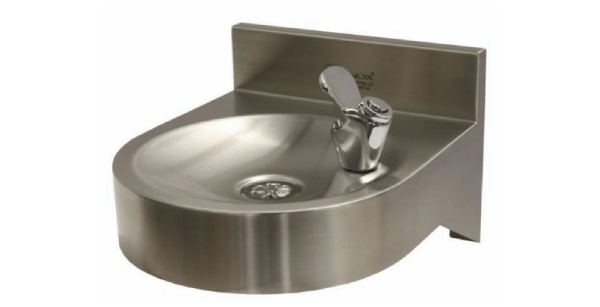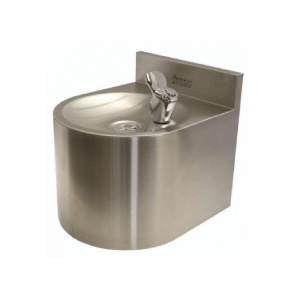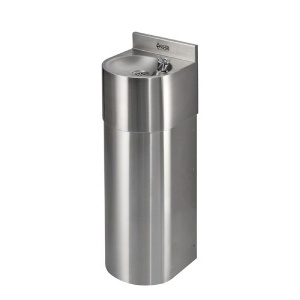
Access to safe drinking water is essential for maintaining students’ health and concentration, and schools in the UK have a responsibility to ensure that their students have adequate access to clean and safe drinking water.
Water fountains are a common source of drinking water in schools, but they can also pose a potential health risk if they are not properly maintained.
In this article, we will explore the regulations and guidelines that UK schools must follow to ensure the safety of their water fountains.
Did you know?
Having easy access to water sources like water fountains and water coolers increases students' water consumption by up to 25%.
Schools who prioritise their students’ health and hydration can also reduce fatigue, improve behaviour, and ability to learn in their students, which is why water facilities are essential to a positive and productive educational environment.
Find out more about the benefits of hydration and Promoting Healthy Water Drinking Habits at School here.
Regulations for Water Fountains in UK Schools
School managers need to be aware of the following regulations surrounding water safety and access.
The Water Supply (Water Quality) Regulations 2016
The Water Supply Regulations set out the legal requirements for the quality of drinking water supplied in the UK.
Typically, unless a private water source, water suppliers are responsible for maintaining the quality of water sources – but schools must regularly check the quality of their drinking water to ensure there are no problems, and be prepared to report problems as soon as they arise.
The government states that tap water should not smell and should be clear. If it is not, schools must report this to their water company immediately.
Water Regulations Approval Scheme (WRAS) also recommend that schools:
-
Report new installations and alterations to existing plumbing system to their local water supplier
-
Use approved contractors to carry out plumbing work
-
Ensure water fittings are of appropriate quality
-
Ensure adequate backflow prevention arrangements to safeguard water supply quality.
The Equality Act 2010
The Equality Act states that it is illegal for institutions to discriminate against people with disabilities. This can include access to water. As a result, schools must consider different heights for water fountains to ensure wheelchair users and other disabilities are catered for.
The School Premises (England) Regulations 2012
The School Premises Regulations require schools to provide ‘suitable’ drinking water facilities. This means ensuring they are readily accessible and separate from toilet facilities.
Drinking water facilities must be also maintained in good working order and kept clean. Any outlets that supply cold water that is suitable for drinking must also be clearly marked as such.
Guidelines for Water Fountains in UK Schools
In addition to the legal requirements, the Department for Education issues guidelines for schools on the use and maintenance of water fountains.
The DfE’s guidelines recommend that schools should:
-
Regularly clean and disinfect their water fountains, using appropriate cleaning products and procedures to prevent the growth of bacteria and other harmful microorganisms.
-
Ensure that their water fountains are regularly inspected and maintained, and that any faults or defects are promptly repaired.
-
Provide information to students on the proper use of water fountains, including the importance of not touching the spout or nozzle with their mouths or hands.
-
Ensure that their water fountains are accessible to all students, including those with disabilities, and that they comply with the requirements of the Equality Act 2010.
-
Consider the placement of their water fountains to minimize the risk of contamination, for example by placing them away from toilets and other potential sources of bacteria.
-
Avoid tanked water supplies
-
Choose cold water main supplies over tanked supplies – as tanked are difficult to maintain in good condition (National Education Union)
How do Cactus Water Systems ensure compliance with UK regulations?
Our units are created with hygiene and water regulations in mind. All of our water fountains are easily connected to mains water supplies – and our installers are highly trained to ensure the safest installation.
Many of our products, such as the CWS WMDF 462 water fountain or the CWS FSDFA 471 floor standing water fountain are made of WRAS (Water Regulations Advisory Scheme) approved parts, meaning they comply with the high standards set out by water regulations.
We also provide cleaning, servicing and repairs carried out by our expert teams to give you peace of mind that your units meet regulations.
Designed with ease of use and hygiene in mind, our water fountains are made from one piece of metal – with no crevices for easy cleaning. Many water fountains come in a variety of sizes, and our wall-mounted fountains can be installed at any height – all to ensure your school adheres to the 2010 Equality Act regulations.
Final word
UK schools have a responsibility to ensure that their water fountains provide safe drinking water to their students, and doing so can not only protects institutions from liabilities, but also ensures students' health and wellbeing.
At Cactus, we take water quality regulations very seriously, which is why all of our products are vigorously tested to ensure the highest water quality.
Contact Cactus Water Systems today to buy, rent or simply get more information on how we can keep your school hydrated.














